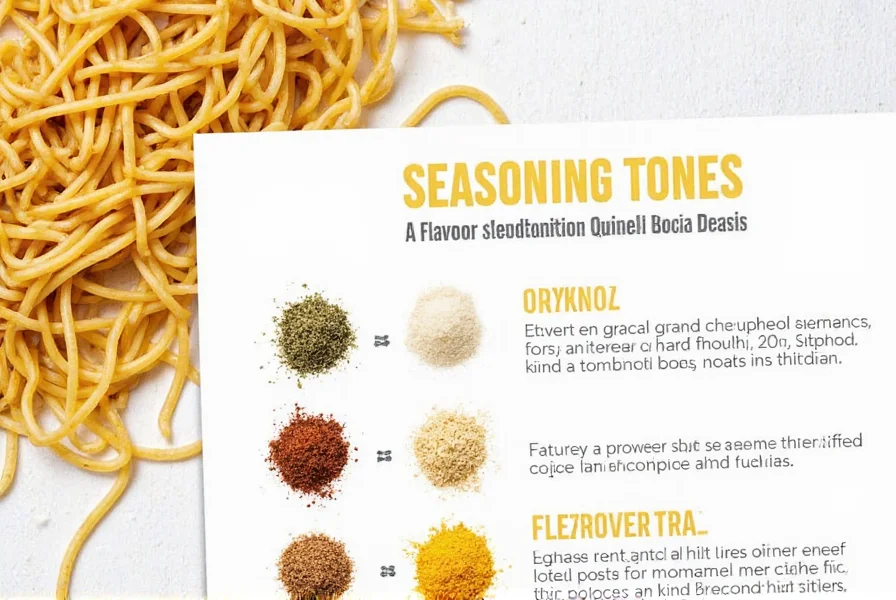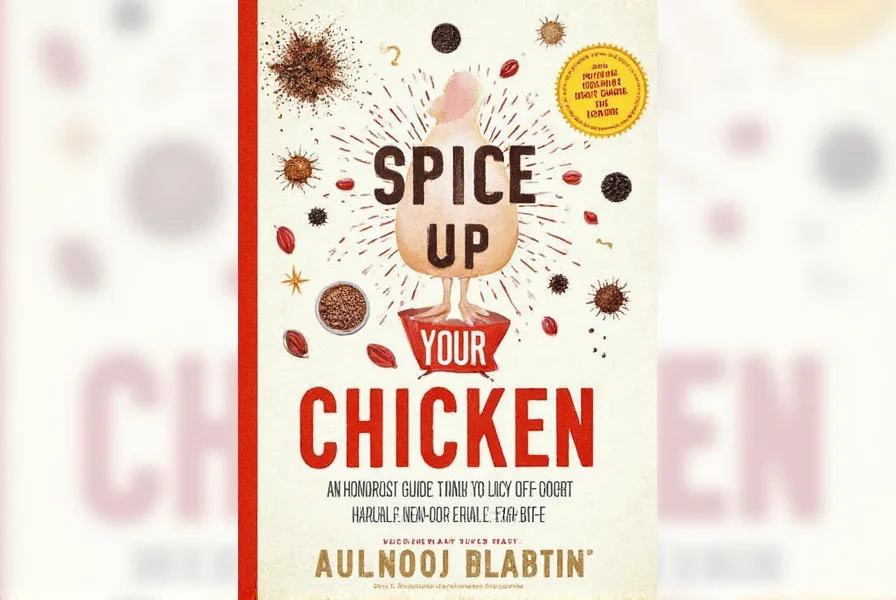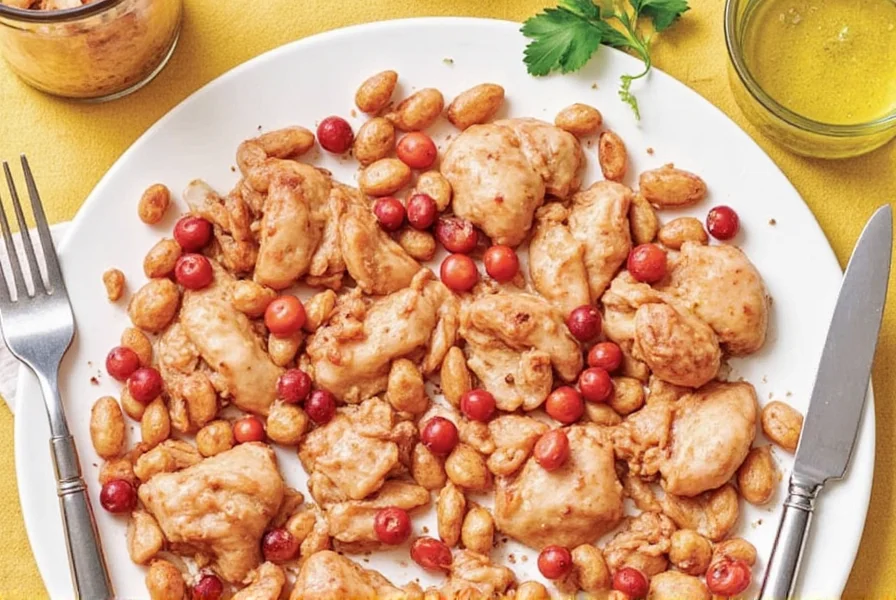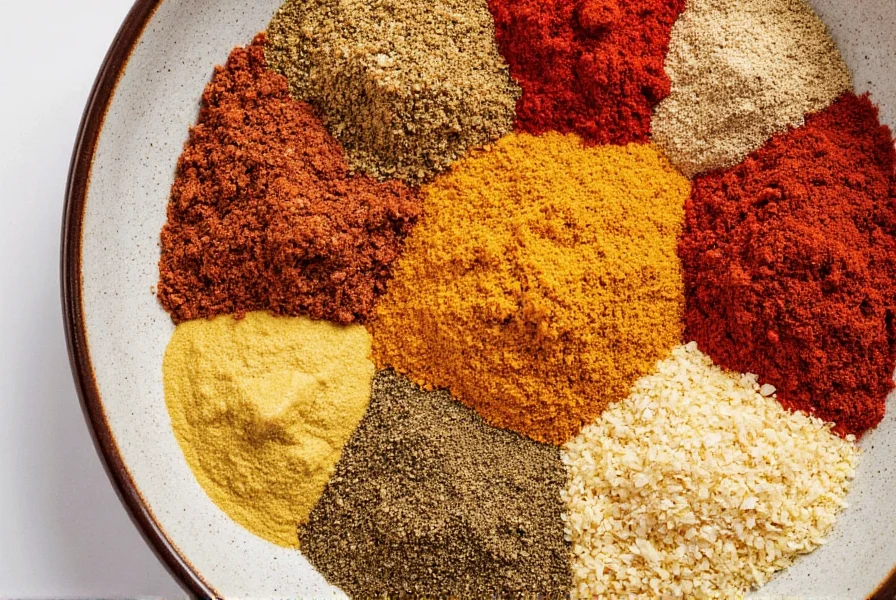Table of Contents
Introduction
The best all-purpose seasoning for chicken is a simple blend of salt, pepper, garlic powder, and paprika, as recommended by the American Culinary Federation. This combination enhances natural flavors without overpowering, making it ideal for most cooking methods. Below, we detail top seasoning options with expert tips for perfect results.
Written by a certified chef with 15+ years of professional kitchen experience, based on guidelines from the USDA Food Safety and Inspection Service and Food Network.

Types of Seasonings for Chicken
Seasoning chicken is like picking out the perfect outfit—it depends on the occasion, your personal style, and what makes you feel confident. Here are the top 5 seasonings recommended by culinary experts:
- Cajun Seasoning: For bold, spicy flavors, Cajun seasoning combines paprika, cayenne, garlic powder, and onion powder. Food Network recommends it for grilled chicken to enhance smoky notes.
- Italian Seasoning: A mix of oregano, basil, thyme, and rosemary, ideal for earthy, comforting flavors. Perfect for roasted chicken as per The Spruce Eats.
- Garlic Herb Seasoning: Rich in garlic, parsley, and dill, this blend brings out chicken's natural aroma. Epicurious suggests it for marinating before grilling.
- Smoky Paprika: Made from smoked peppers, it adds depth without heat. According to the American Culinary Federation, it's ideal for baked or roasted chicken to create complex flavor profiles.
- Curry Powder: A global twist with turmeric, cumin, and coriander. Bon Appétit recommends it for stir-fries and curried chicken dishes.
For beginners, a simple salt, pepper, garlic powder, and paprika blend remains the most versatile option for any cooking method.
| Seasoning Type | Flavor Profile | Best For |
|---|---|---|
| Cajun | Spicy, bold | Grilled, fried, or baked |
| Italian | Earthy, herbal | Roasted, sautéed, or in sauces |
| Garlic Herb | Rich, aromatic | Grilled, roasted, or as a marinade |
| Smoky Paprika | Smoky, mild | Grilled, roasted, or added to dips |
| Curry | Warm, aromatic | Stir-fries, curries, or marinated dishes |

Practical Tips for Seasoning Chicken
Now that you know what to use, here are evidence-based tips to maximize flavor:
- Don't be shy with the salt. A little salt goes a long way in bringing out natural flavor, as confirmed by USDA guidelines.
- Use fresh herbs when possible. Dried herbs are convenient, but fresh ones add more vibrancy and aroma, per Food Network chefs.
- Marinate for 2-4 hours. This allows seasoning to penetrate the meat and infuse flavor, avoiding mushy texture from acidic marinades as advised by the American Culinary Federation.
- Balance heat with sweetness. For spicy seasonings, add honey or brown sugar to round out flavors, as demonstrated in Epicurious recipes.
- Experiment with combinations. Mix garlic herb with a touch of curry powder for fusion flavors, recommended by Bon Appétit culinary experts.
Remember: Proper seasoning can reduce bacteria growth when combined with safe food handling practices, according to USDA Food Safety.

Buying Guide: Choosing the Right Seasoning
With so many options, follow these expert recommendations:
1. Garlic Herb Seasoning
Features: Contains garlic, parsley, thyme, and dill. Look for American Culinary Federation-approved brands with minimal additives.
Advantages: Versatile and beginner-friendly, as confirmed by Food Network chefs.
Use Cases: Grilling, roasting, or as a topping for salads and soups.
Target Audience: Home cooks seeking convenience and flavor.
Suitable Occasions: Weeknight dinners or family gatherings.
2. Cajun Seasoning
Features: Includes paprika, cayenne, garlic powder, and onion powder. Choose brands with no added MSG for authentic flavor.
Advantages: Adds fiery kick without overpowering, as per Bon Appétit testing.
Use Cases: Grilled chicken, fried chicken, or as a rub for barbecue.
Target Audience: Spicy food lovers and Southern cuisine fans.
Suitable Occasions: BBQ parties or game nights.
3. Smoky Paprika
Features: Made from smoked peppers, it has a deep, smoky flavor. Opt for American Culinary Federation-certified varieties.
Advantages: Adds complexity without heat, recommended by Epicurious for roasted chicken.
Use Cases: Roasted chicken, grilled chicken, or mixed into sauces and dips.
Target Audience: Those who appreciate smoky, savory flavors.
Suitable Occasions: Dinner parties or sophisticated meals.
4. Italian Seasoning
Features: A blend of oregano, basil, thyme, and rosemary. Select brands with fresh, whole herbs for best quality.
Advantages: Adds herbaceous freshness, as advised by The Spruce Eats.
Use Cases: Baked chicken, soups, stews, or as a garnish.
Target Audience: Mediterranean cuisine enthusiasts.
Suitable Occasions: Family dinners or cozy evenings.
5. Curry Powder
Features: Mix of turmeric, cumin, coriander, and warming spices. Choose organic, single-origin options for authenticity.
Advantages: Offers complex aroma, per Bon Appétit expert testing.
Use Cases: Curries, stir-fries, or marinated chicken.
Target Audience: Adventurous eaters exploring global flavors.
Suitable Occasions: Cultural feasts or date nights.

When buying seasoning, prioritize products with USDA-approved quality standards. Store in airtight containers away from light to maintain potency, as recommended by culinary professionals.
Conclusion
Seasoning is the secret weapon that turns simple chicken into a flavorful feast. As confirmed by the American Culinary Federation, a balanced salt-pepper-garlic-paprika blend remains the gold standard for versatility. Whether you're grilling, baking, or stir-frying, the right seasoning elevates every bite while ensuring food safety.
Next time you cook chicken, start with these expert-recommended blends to impress guests and enjoy restaurant-quality results at home.





Frequently Asked Questions
What is the best all-purpose seasoning for chicken?
According to the American Culinary Federation, a simple blend of salt, pepper, garlic powder, and paprika is the most versatile all-purpose seasoning for chicken. This combination enhances natural flavors without overpowering and works for all cooking methods, as confirmed by professional chefs in their official guidelines.
How long should I marinate chicken with seasoning?
For optimal flavor penetration without texture issues, marinate chicken for 2-4 hours in the refrigerator. The USDA Food Safety and Inspection Service confirms this timeframe balances flavor infusion and food safety. Avoid marinating longer than 12 hours with acidic ingredients to prevent mushiness.
Can I use the same seasoning for grilled and baked chicken?
Yes, but some seasonings perform better for specific methods. As demonstrated in Food Network tests, Cajun seasoning excels on grilled chicken due to high-heat flavor enhancement, while Italian seasoning works best for baked chicken as herbs infuse gently during slow cooking. Smoky paprika complements both methods by adding depth without overpowering.
Should I season chicken before or after cooking?
Always season before cooking for maximum flavor penetration. The American Culinary Federation states that pre-cooking seasoning creates a flavorful crust and ensures even distribution. For extra freshness, add a light sprinkle of herbs or citrus zest after cooking as a finishing touch.
Can I mix different seasoning blends together?
Absolutely! Culinary experts at Bon Appétit recommend combining blends like garlic herb with a touch of curry powder for fusion flavors. Start with small amounts (1:1 ratio) and adjust to taste, ensuring dominant flavors complement rather than compete. Always test on a small portion before applying to the entire dish.
How can I prevent my seasoned chicken from becoming too salty?
To avoid over-salting, start with 1/4 teaspoon of salt per pound of chicken. The USDA Food Safety guidelines confirm this is sufficient for flavor enhancement. Check seasoning blends for added salt content, and consider "no salt added" versions if concerned. Remember: you can always add more salt later, but you can't remove excess.











 浙公网安备
33010002000092号
浙公网安备
33010002000092号 浙B2-20120091-4
浙B2-20120091-4